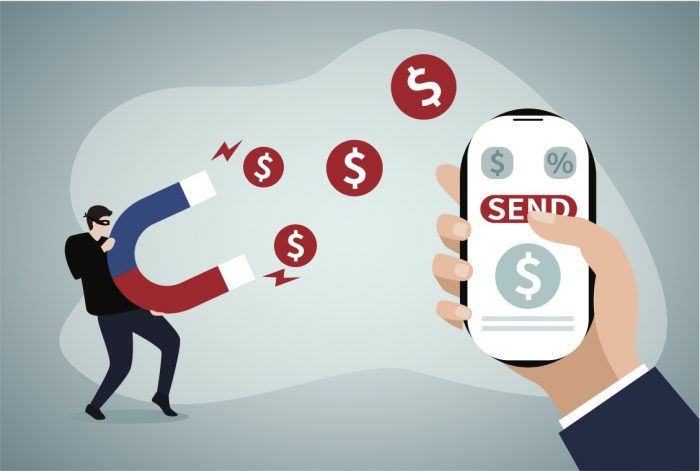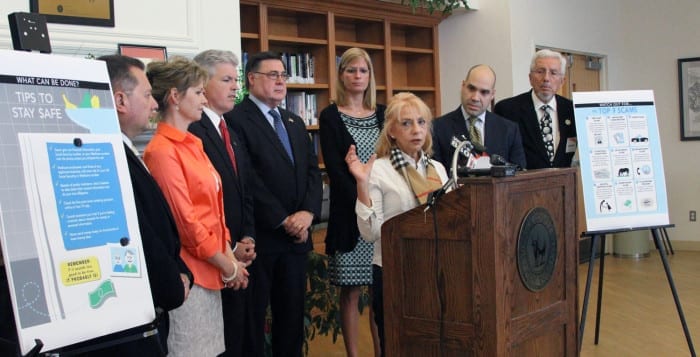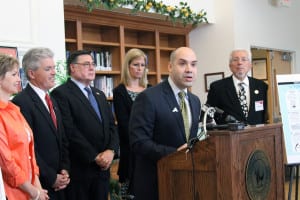This year, March 5-11 marks National Consumer Protection Week, and PSEG Long Island urges customers to understand scammers’ tactics and do the right thing if confronted with a demand for payment and a threat of imminent shutoff: Get the truth from the real PSEG Long Island at 1-800-490-0025.
“Consumer Protection Week is a time to help people understand their consumer rights and avoid frauds and scams. PSEG Long Island wants customers to remember one simple thing: If someone threatens to immediately shut off your power, call the number that’s printed on your bill to verify before acting,” said Lou DeBrino, PSEG Long Island’s vice president of Customer Services. “Scammers do everything they can to create the impression of an urgent problem in the hopes that you panic and miss all the clues that they’re not who they appear to be. Please be alert to the possibility of a scam, take a moment to think, and then contact us directly using the phone number on your bill if you’re still not sure.”
More than 2,500 scam calls were reported to PSEG Long Island in 2022. Many of these scammers are demanding immediate payment via web-based electronic payment services. PSEG Long Island does not accept external, web-based electronic payment services (outside of payments through MyAccount) as a method of payment.
What customers should know about payment scams
- Scammers impersonating PSEG Long Island most frequently threaten to shut off power immediately unless payment is made.
- Many scammers use phone “spoofing” technology to make their number display on your phone as “PSEG Long Island.”
- PSEG Long Island will never request that customers use one specific method of payment.
- Scammers typically want their victims to transfer money via a web-based electronic payment service, a prepaid debit card, or even Bitcoin, sometimes asking people to buy a prepaid card at the nearest convenience store and then to read them the PIN over the phone.
- PSEG Long Island does not accept web-based electronic payment services, prepaid debit cards or Bitcoin as payment.
- Sometimes phone scammers will demand a deposit for a priority meter installation. PSEG Long Island does not require a deposit for meter installations.
- If a customer has doubts about the legitimacy of a call or an email — especially one in which payment is requested — they should call the company directly at 1-800-490-0025.
In-person visits
Occasionally, scammers may go door to door impersonating PSEG Long Island employees, flashing a fake ID and/or claiming to be a utility collection representative. The impostors may wear “uniforms” or affix false company signs to their vehicles. The scammers generally ask for personal information, which real utility representatives do not do, or offer bogus discounts. Again, if customers have any doubts, they should not let the person in, and should call 1-800-490-0025 to verify.
PSEG Long Island employees must carry a company ID and present it when requested. If customers have doubts, do not let the person into the house and call 1-800-490-0025 to have a customer service representative verify that an employee has been dispatched to the location. An actual PSEG Long Island employee will respect the customer’s decision and remain outside. If the person escalates their efforts to enter the home, customers should consider calling 911.
Fake websites
Some scammers purchase web domains that closely resemble the actual URL of a utility and create a fraudulent replica of the legitimate website. Their plan is to dupe users who click on these fake sites via search results, or type in an inaccurate web address. Once on the spoofed site, a visitor is presented a number of bill payment options, all pointing back to an outside bill pay site.
PSEG Long Island always uses the “.com” domain. Its real website can be found at www.psegliny.com.
How actual PSEG Long Island reps handle phone calls
Customers should also know what PSEG Long Island will and won’t discuss over the phone. A genuine PSEG Long Island representative will ask to speak to the Customer of Record. If that person is available, the representative will explain why they are calling and provide the account name, address and current balance. If the person on the phone does not provide the correct information, it is likely the customer is not speaking with a PSEG Long Island representative.
If the Customer of Record is not available, the PSEG Long Island representative will not discuss the account at all and ask that a message be left for the Customer of Record to call 1-800-490-0025.
PSEG Long Island is a member of the Utilities United Against Scams (UUAS) collaborative. UUAS, a consortium of more than 145 U.S. and Canadian electric, water, and natural gas utilities and their respective trade associations, has helped to create awareness of common and new scam tactics and to cease operations of nearly 5,000 toll-free numbers used against utility customers by scammers.
For more information on various payment scams reported in the PSEG Long Island service area and around the country, visit https://www.psegliny.com/myaccount/customersupport/scamsandfraud.









